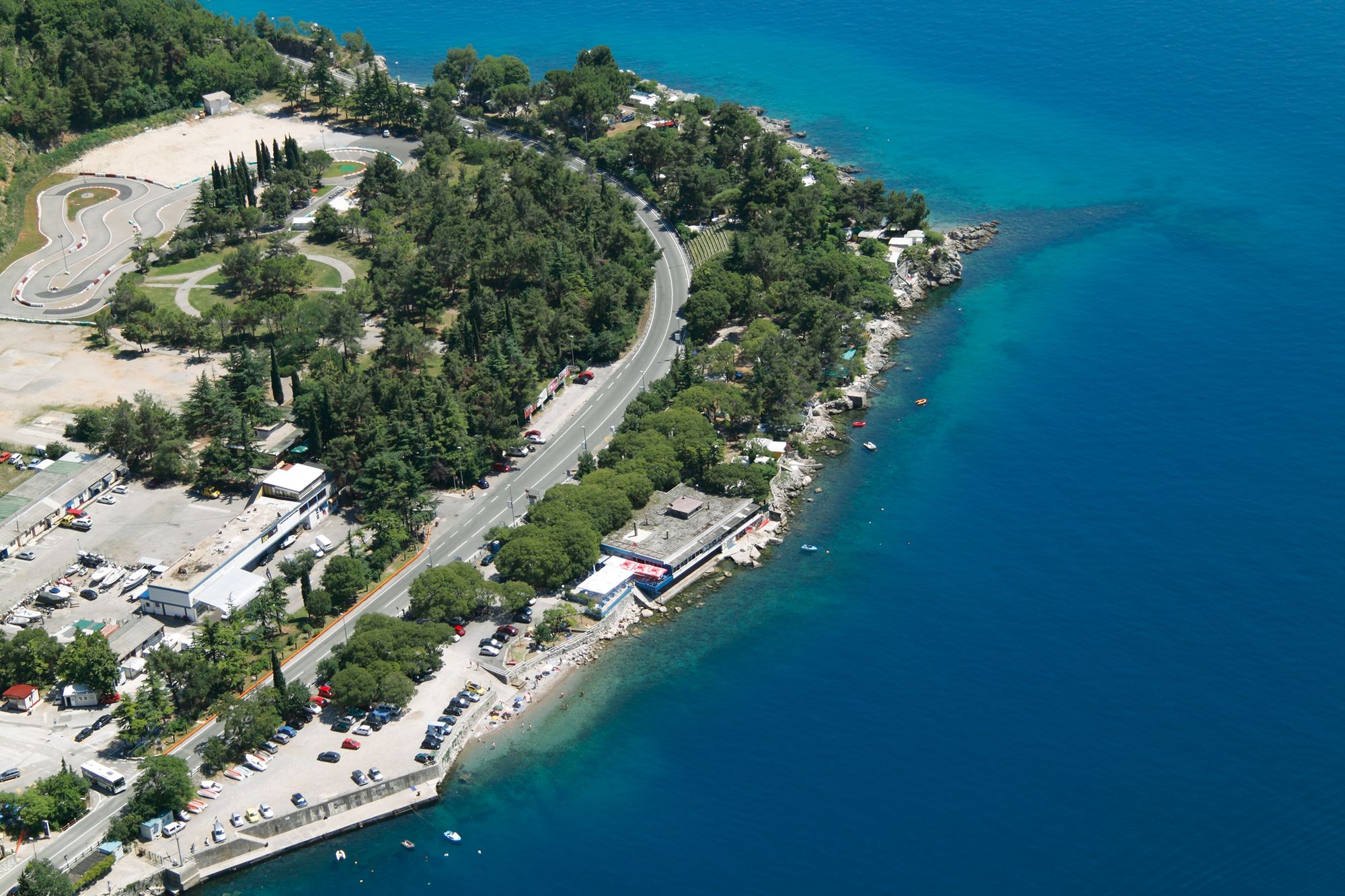March 11th, 2022 - Did you know that Rijeka once used to host an all-female car rally?
Rijeka and Opatija have a long tradition of motorsport racing, going back to the early 1930s when a race course named Opatija Circuit first started hosting auto races.
Also known as the Kvarner Circuit (Circuito del Carnaro), the race course was 6 kilometres long and had a starting point in Preluk bay between Rijeka and Opatija. The circuit used the streets of Opatija and its environs, offering splendid views of the Adriatic Sea.
The circuit’s claim to fame was the 1939 Adriatic Grand Prix, when the Italian team decided to compete in Opatija instead of the French Grand Prix in Rheims. Luigi Villoresi won the race driving a Maserati 4CL, essentially turning Opatija into a prestigious racing venue overnight.
It soon became apparent that the narrow roads along the coastline, complete with plenty of roadside obstacles, didn’t exactly make for safe driving conditions. On more than one occasion, races on the Opatija Circuit ended in tragic deaths of drivers; although the track remained popular for decades in spite of all issues, auto races were discontinued after the Formula 3 Gran Premio Adriatico in 1968.
The end of auto races kicked off a golden era of motorcycle racing, after the Adriatic Grand Prix became a round of the FIM Motorcycle World Championship.
The 1977 Grand Prix was held in spite of an order from the FIM to improve the safety of the track. No modifications were made prior to the event and the race ended up with 19 injured and 2 fatalities, prompting the FIM to ban all road races from the World Championship schedule. The Opatija Circuit fame came to its end, and a modern replacement circuit was created on the other side of Rijeka - the Automotodrom Grobnik.
A lesser known fact about racing on the Kvarner coast is that Rijeka also used to host an all-female car rally. Named Rijeka Women’s Auto Rally, the racing event was held every year from 1971 to 1999.
Back in 1971, as Auto Club Rijeka was celebrating its 25th anniversary, the club’s executive board decided to hold an all-female race in honour of International Women’s Day.
Held on March 7th 1971, the first rally drew a lot of interest, with 60 drivers registering to take part in the race. The 41 km circuit took the racers from the starting point in Preluk to Lovran, Jušići, Krnjevo, and back to Preluk.
 Preluk bay / visitrijeka.hr
Preluk bay / visitrijeka.hr
They competed in three classes: 850 ccm, 1250 ccm, and 1250+ ccm, won in the first year by Inga Kren, Radmila Valković and Vesna Grgurina respectively.
The Rijeka Women’s Auto Rally soon became an attractive racing event which, together with the international Zagreb rally, formed the basis for the establishment of the national championship for women.
Women were flocking to Rijeka from other parts of Croatia to show off their racing skills. Some of the notable winners were Sonja Kezele and Mirjana Bučić from Opatija with ten victories each, Nađa Cenov from Rijeka who won the race eight times, and Olga Bebić from Split who won seven times.
After a while, 41 drivers who had won in some of the classes or in the overall standings earned the right to compete in a racing event called the Champions’ Cup.
In 1996, Auto Club Rijeka marked its 50th anniversary with a grand 25th edition of the women’s rally, held under the motto ‘50 hours of rallying’ and complete with an entertainment programme that featured something new with each passing hour.
All-female rallies were held in Croatia until 1999. The last, 28th women’s rally in Rijeka was won by Auto Club Rijeka, represented by racers Palmina Alijanović, Smiljka Pavić, Luisa Božićević, Dajana Aračić and Ljiljana Kamenar.


